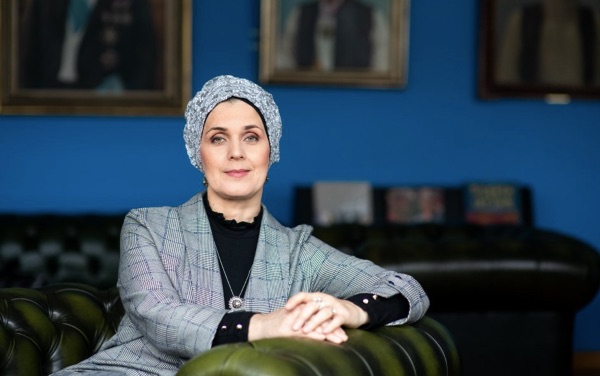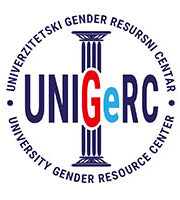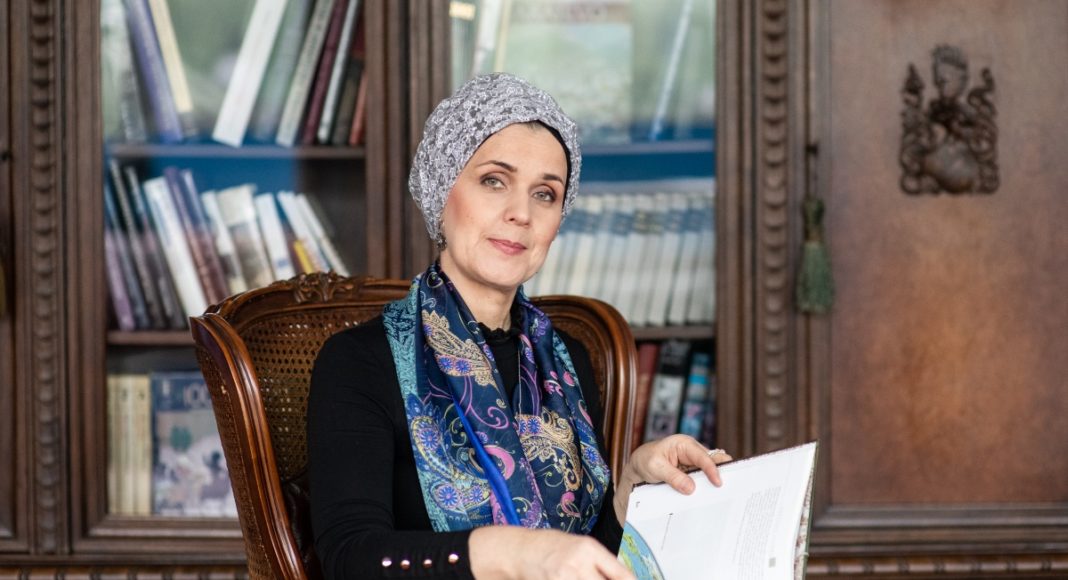In the patriarchal and deeply traditional society in which we live, gender equality is still considered a secondary issue and very often any discussion about gender roles and gender identity is considered a joke. It is true that women today live better than ever, but women’s rights are still not completely equal to those of men. The reason for this is women’s very weak awareness of women’s roles, the lack of clear definition of our women’s rights and freedoms in a society. On top of everything that this society lacks is the unwillingness of the patriarchal and deeply class-divided society in which we live to accept women as human beings with clearly defined needs, freedoms and rights to live in a world of absolute equality with men whom traditional societies accept as the only meritorious subjects of true social progress. We have evolved as a society. But unfortunately, our understanding of gender roles has not.
I believe that many women do not even know what the word ‘feminist’ actually means. Wikipedia says that a feminist is a person who believes in the social, political and economic equality of the sexes. Simple, crystal clear. But is it always completely clear to everyone? With Zilka Spahić Šiljak, professor of gender studies, feminist and activist, peace builder, we talk about feminism and women’s activism and the reasons why today, more than ever, we need to educate society about what feminism is and why it is important today to understand that the problem of gender roles exists and that we should all solve it together, both men and women, and that we should all be feminists.
What does women’s activism represent?
Working as a young activist who took care for women who survived sexual violence in the war in Bosnia and Herzegovina, Zilka Spahić Šiljak completely unconsciously chose her career and her life path. Remembering those sinister times, she is aware that, completely unprepared and inexperienced, she found herself overnight in situations where she helped women who had undergone severe torture and violence and who could not understand why they had to be exposed to such types of violence. That experience, Zilka admits, was a key turning point in her life, which made her decide to continue her education in the direction of human rights and gender studies. Realizing that it was necessary to theoretically shape and articulate everything she dealt with in practice, not knowing how to adequately name it and clearly define it scientifically, she dedicated her scientific career to the study of gender sciences, focusing on the topics of gender, feminism, religion, politics, peace building and education.

Zilka Spahić Šiljak
“I see myself as a scientist, activist and peace builder. Feminist approaches to knowledge require a link with activism, so that the knowledge we produce is effective in practice and connected to people’s lives, and peace building is essentially connecting people, establishing broken connections and building new ones. Today, I lead the Transcultural Psychosocial Educational Foundation in Sarajevo and I am the academic director of the University Gender Resource Center at the University of Sarajevo. I worked in U.S.A. for years and that experience helped me to enrich the bridges I build with a large network of people and institutions”, explains Spahić Šiljak.
Deciding to simultaneously be dedicated to science and building an academic career as well as building her religious habitus, Zilka often points out that her academic and social career is dedicated to activism that is also grounded in religion, but which corresponds with civil activism. Therefore, I asked Zilka how we could most simply bring the formulation of the Muslim feminist identity to the public, to which she belongs, and its’ connection with civil activism, and whether we can call such activism women’s activism?
“For me, religion presents both the refuge and an inspiration for action. My civic activism has always had its foothold in religion, because believers must live humanistically and as responsible human beings. As a believer and someone who has a formal Islamic education, I have always tried to question religion in the intersection with gender, politics, culture and identities, because a faith that is not questioned and not ventilated with new perspectives becomes a petrified dry tradition and emotion, which can then easily be turned into an ideology and idolatry. Religion should revive our spirit, give us strength, motivation and incentive us for good, and not uncritically impose established patriarchal patterns of behavior that are harmful to both women and men. For me, Muslim feminism is both an identity and an analytical category, which means that I identify myself clearly as a Muslim feminist who advocates for social justice, and there is no social justice without gender justice. Islam offers an excellent platform for the joint action of women and men in achieving justice, provided that the messages of Islam are approached with an open mind and that its’ messages are read and unpacked again and again in every time and context,” explained Zilka.
There is no shame in being a feminist
Recently, at several gatherings dedicated to women’s entrepreneurship and leadership, I have witnessed a very strange and absolutely unfounded isolation of women entrepreneurs, but also those from the corporate business, from feminism and the need for female activism. Zilka, why has it become important to underline daily that it is not a shame to be a feminist and that it is not a sloppy function, but a beneficial feature of human, civic activism, without which we would certainly not walk this “world” as boldly today as women scientists, businesswomen, politicians, bankers, teachers, painters, journalists, pilots…?
“We are facing resistance to gender equality all over the world, even in the Balkans, and this is reflected in the frequent statements of women, such as: ‘I support women to be equal, but I am not a feminist.’ For years, I have been listening to women on the public stage, but also in everyday communication, who distance themselves from feminism as something dishonorable, dirty and contagious, and they know very little about feminism. I always wonder what it is that upsets women so much that they feel the need to emphasize that they are not feminists even though no one asks them or asks them to make a statement. There are many reasons for this, and one of the biggest is the fear that someone will classify them in the groups of those who are thought to be against family, tradition, religion and who are haters of men. Feminism is the fight against oppression, sexism and the exploitation of women in order to make them equal with men. Over time, feminism in the media and the public has been reduced to simplified stereotypical images of mustachioed, manly women who do not want children and families and who hate men. Feminists are not against children, family and men, but they are against the exploitation of women and they are against the exclusion of women from creating policies, decision making, and using resources. Finally they are against misogyny, hatred towards women which is reflected in sexism in communication and gender-based violence. It is therefore important to remember women’s history and the women who owe us their struggle for civil and political rights and who, because of their ideas, were persecuted, imprisoned, and some, like Olympe de Gauge in France, were executed by guillotine, because, as it was interpreted at the time, dared to interfere in the affairs of the state. Today, we would not be scientists, businesswomen, politicians, engineers, etc. if there were no suffragettes, and anti-fascists in the Balkans,” explains Spahić Šiljak.
And why should women engage in this kind of women’s activism in the first place, and how necessary is this activism in the business world as well, as a basic lever of female leadership and female entrepreneurship?
“Activism is important in every area of life, both in academia and in the business world, which is still a predominantly male world. Working on research on women’s leadership in Bosnia and Herzegovina, which was published in the book “Bosnian Labyrinth: Culture, Gender and Leadership” in 2019, it was shown that most women are empowered for leadership in politics or for starting their own business precisely through the programs of non-governmental organizations. I myself led some of such women’s empowerment programs in local communities and what I realized is that the most important thing for women is to become aware of the strength they have and to fight internalized stereotypes that they cannot be leaders or successful business women. Even when they learned how to write a business plan and start their own business, the most important thing was to fight the shadows of doubt that hung over their heads reminding them of the messages they heard growing up, that they can’t or won’t succeed and that it is not for women, so it took a lot of strength and support to dare to start a business or run in the elections,” says Spahić Šiljak.
Stereotypical male-female roles make it difficult for women to make a living in business and politics. Male and female stereotypical gender roles in patriarchal societies have brought women a lot of stratification and inequality in the private, but undeniably also in the business world. Zilka Spahić Šiljak explains how stereotypes about gender roles have been both an incentive and a huge challenge in her academic and activist career so far.
“Gender stereotypes are an obstacle for women, as well as men, to realize themselves as persons with all their potential and aspirations. Generalizations about what it means to be female and male in society are promoted through primary socialization, education and the media, so any step out of the given gender box is understood as a deviation from what is socially and culturally acceptable. Most people therefore adhere to established divisions of occupations, jobs and characteristics attributed to women and men. In a large number of societies, it is still considered that the private sphere is female and the public is male, that women take care of the family, and men earn and support the family. Although women broke through the glass ceiling a long time ago and managed to position themselves in many professions that for centuries were masculine, i.e. reserved for men, women are still in a labyrinth where they have to find ways to prove that they are just as good and capable as men. This is especially pronounced when a woman needs to get a promotion at work or come to a decision-making position. Due to gender stereotypes and the burden of balancing family life and career, women find it difficult to reach leadership positions and survive. Although we have made great progress, women are still underrepresented in leadership positions in politics and business. It is therefore important to work not only on empowering women, but also on changing the culture that nurtures and maintains gender stereotypes”, explains Spahić Šiljak.
Very often Zilka points out that she was privileged to work at leading academic institutions in Europe and U.S.A., where she had the opportunity not only to learn, but also to improve her capacities, carefully building at the same time the networks of cooperation that she considers her greatest asset today.

Zilka Spahić Šiljak
“Somehow I see myself as a person who constantly connects something. I connect people of different backgrounds, those who come from religious and secular circles, from academia and the non-governmental sector, from business and politics, young and older generations. It is a real wealth, because every person carries great potential and if they connect with other people they have a chance to learn, share experiences and expand the horizons of knowledge”, reveals Spahić Šiljak.
The blessing of working with women in local communities
During her career, Zilka had the opportunity to work very often with women in small local communities, who were struggling to rebuild their lives after returning to their war-torn homes.
“I was privileged to help but also learn from those women who found the strength to start anew to build their families and their communities. I can freely say that women in local communities have borne the greatest burden of peace building, but that this is not sufficiently visible or socially recognized. When you see that women have managed to finish elementary school, then high school and some even university, then start their own business, then get politically involved and work together with other women to build a community, then you will be proud because you have helped someone realize themselves as a human being. When you meet such women, and they greet you and you haven’t seen them for 20 or more years, you will be proud that you took even a little part in their success”, Zilka proudly reveals.
Due to her academic career, she is connected to different generations, and as she teaches her students in online classes, she is also connected to communication in the virtual world. Regarding how he observes the complete dependence on communication and presence in the virtual world, Zilka answers:
“The virtual world is reality and we cannot change that, but we can change the way and culture of communication, which will not be superficial and reduced to form and appearance, but to what makes us makes people with all feelings, aspirations and potentials. As one music artist says: Everyone wants to be heard! Which means that we all need our feelings and needs to be validated and acknowledged. This does not mean that others have to agree with us, but to show us that they hear us and that they care. ‘Selfie culture’ distances us from each other, because we falsely present ourselves and try to be what we are not, and we are afraid to show emotions and vulnerability. If we could listen a little more and talk less, take selfies a little less, and think more and care for each other and rejoice in each other’s successes, I think the world would be a more pleasant place to live.”
Considering that Zilka is engaged in several different projects, and at the same time teaches at faculties in BiH and England, her work pace is very demanding and tiring, but she admits that it fulfills her because she does what she loves and what she believes in.
“I believe that it is important to work on the promotion of human rights, gender equality and peace building in Bosnia and Herzegovina and the Balkans, because this is the only way we can build a society of responsible citizens.” I charge my batteries with spirituality both through religious ceremonies and walks through nature, reading good literature and, of course, hanging out with friends. Sometimes meeting and talking with a good person can be therapeutically very effective and refreshing, because we are reflected in each other and we need each other”, says Zilka Spahić Šiljak at the end of our conversation.
And after everything you have read, let me once again remind you of one ubiquitous truth from the beginning of the text: The problem of gender roles and gender equality exists and we should not turn our heads away from it, but we should all work to solve that problem. Both men and women. Because being a feminist is not a shame. It’s a privilege. Pride. Dignity.



